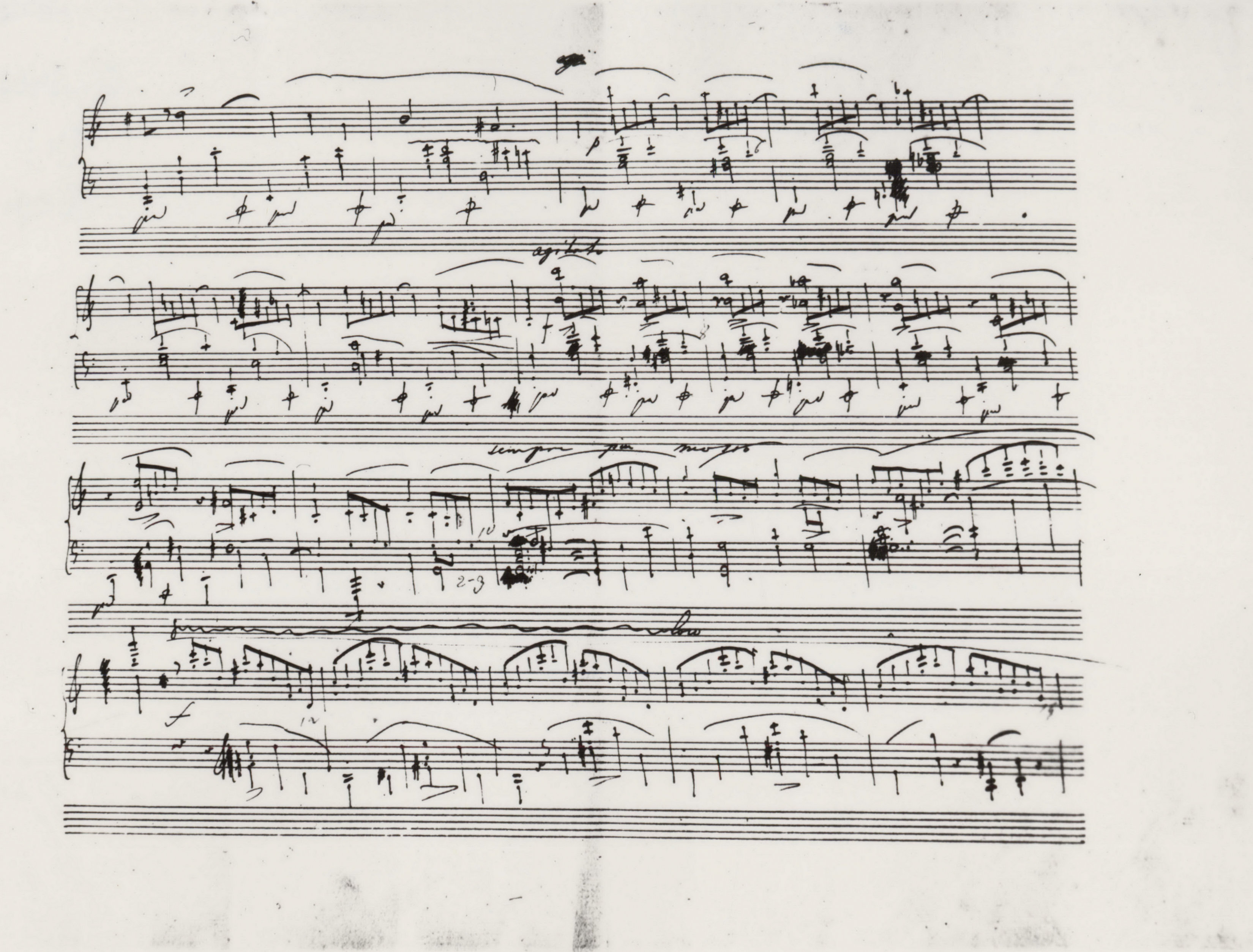



The version of GE with f 1 at the beginning of b. 45 and f
1 at the beginning of b. 45 and f 2 at the beginning of b. 47 cannot be authentic:
2 at the beginning of b. 47 cannot be authentic:
- It is practically unthinkable that Chopin could have forgotten to mark the first appearance of the leading f
 note twice. Oversights of accidentals, quite frequent in Chopin's works, generally concern recurrent notes, e.g. if in the discussed bars a
note twice. Oversights of accidentals, quite frequent in Chopin's works, generally concern recurrent notes, e.g. if in the discussed bars a  was present before the 1st quaver, but was absent before the 4th note, one could be certain that both should be altered.
was present before the 1st quaver, but was absent before the 4th note, one could be certain that both should be altered. - f1(2) does not require a cautionary
 here, since there are no f
here, since there are no f notes in the preceding bar.
notes in the preceding bar. - the 1st quaver is not a harmonic note, but a delay of the third one, as is the 8th quaver for the ninth one. At the beginning of the bar, they are separated by c1(2), which is related to the rhythm – the resolution of the delay occurs after the crotchet; together with the two L.H. strikes, it refers to the established rhythmic pattern from the previous bars (b. 36-44). Cf. the note below on the corrections in the L.H. part.
The reviser of GE was focused on supplementing the overlooked accidentals – he had already detected the missing ones in b. 33 or 37 and had just added a  to f
to f 1 in b. 43. Without analysing the structure of the figurations in the discussed bars, he assumed that it was also an inaccuracy of notation. Paradoxically, he could have been reassured by the authentic
1 in b. 43. Without analysing the structure of the figurations in the discussed bars, he assumed that it was also an inaccuracy of notation. Paradoxically, he could have been reassured by the authentic  to f2 in b. 45.
to f2 in b. 45.
It is difficult to say whether the reviser of EE2 (→EE3) had a copy of GE at his disposal while working. German editions would clearly influence the revisions in the later impressions of Wessel's edition in a number of pieces by Chopin (e.g. in the Preludes, Op. 28); however, it generally applies to the editions from 1850s.
In the main text we add cautionary naturals to the discussed notes.
Compare the passage in the sources »
category imprint: Differences between sources; Editorial revisions
issues: EE revisions, GE revisions, Cautionary accidentals
notation: Pitch




